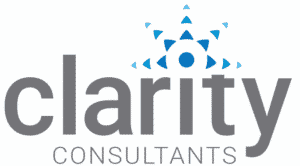[feat-img-left]You, like many businesses, may find yourself in the situation where budget is tight for investing in training and development programs. But you also know that failing to increase your knowledge base (and that of your team) can drag your company down in a competitive business landscape. Luckily, there is a wealth of information available online that is easy to access and reasonably inexpensive (often even free).
But how do you know what courses are worth your time and efforts in the long run? Here are the basics on spot a MOOC that adds value to your company and your HR assets.

Understanding MOOCs
MOOCs, or Massive Open Online Courses, are one avenue many cash-strapped businesses find great value in. They are online courses aimed at unlimited participation and open access via the web. They often consist of traditional course materials such as filmed or recorded lectures, readings and problem sets. Many MOOCs also provide interactive user forums that support community interactions between students, professors and teaching assistants. They often place emphasis on the open-access features, such as open licensed content, flexible structure and varied learning goals to help promote their reuse and remixing of resources. Examples of non-university-based e-learning platforms include Khan Academy, Peer-to-Peer University, Udemy and ALISON. Topics can include everything from business and enterprise skills, to personal development and soft skills, digital literacy, language and IT skills, health and safety and compliance training.Evaluating the Value of the MOOC Learning Method
MOOCs have experienced some substantial hype as learners around the world became very excited about what the programs were capable of. The reality of this training method is that the students really get out what they put in to the programs. The initial excitement around the model was buffered by inflated expectations, and many users inevitably became disillusioned when they found the technology to not be as self-driving as they might have hoped. The quality of the content depends on the source of the MOOC. Big industry names and universities can add credibility to the program but that credibility sometimes comes at a higher price. Notable providers who provide free content to registered users include Stanford, Coursera, Khan Academy and NPTEL. While it is safe to say that the information students receive from a MOOC program can be highly valuable, the accreditation alone likely will not be enough to demonstrate learning. For example, many colleges and universities (or employers) are unlikely to recognize a MOOC as an adequate replacement for a traditional degree. But the demonstrated abilities earned from participating in a MOOC can definitely help you achieve more on the job than you might have originally expected.Deciding Which Is Best for You
When looking at MOOCs to supplement your education, you should take a few things into consideration. First, how much time and budget are you able to put toward the program? Does one MOOC have a more relevant program to your expectations than another? Which institutional participants are important to achieving your goals? Keep all of these in mind when picking your program. For more advice on picking a relevant learning or professional development program to meet your needs, connect with the Clarity team today.
